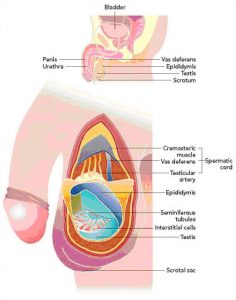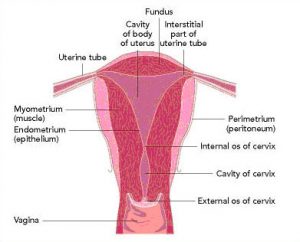Importance of Hormones - Male
The development of normal, mature sperm is the key to male fertility. Sperm production is primarily regulated by two hormones:
- FSH: is responsible for stimulating sperm production in the testicles
- LH: stimulates the production of testosterone, the hormone that helps maintain male sexual characteristics
Under the influence of testosterone and other hormones, immature sperm cells develop through several stages and eventually become mature sperm cells, called spermatozoa. Spermatozoa then pass through the epididymis, where, after 18 to 24 hours, they gain motility, or movement. Finally, mature sperm move through the vas deferens and are stored in the epididymis until ejaculation. The complete process takes about 72 days.
When a man ejaculates (or expels the fluid from his penis), sperm from the seminal vesicles combine with a thick fluid from the prostate and other glands to create semen. This fluid can be deposited into a woman’s vagina, where it travels through the cervix and uterus to fertilize an egg.
Men produce sperm from germ cells within the testes throughout adult life. The production is controlled by various hormones, including FSH and LH (see illustrations 2). LH stimulates the specialised Leydig cells in the testes to secrete the male hormone testosterone. FSH, in conjunction with testosterone, stimulates the seminiferous tubules in the testes to produce mature sperm (see illustration 3). Completion of the entire process of sperm production (spermatogenesis) takes about 72 days.
Sperm are highly specialized cells, which comprise two essential parts: the head, formed by the acrosome, and the tail, which enables the movement. The acrosome surrounds the nucleus where genetic information is stored (see illustration 5).
The production of sperm is, however, an inefficient and vulnerable process and for the daily production of several hundred million mature sperm, more than eight times as many germ cells are required. Furthermore, only a fraction of the sperm produced will have fertilizing potential.
Sperm can live in the genital tract up to 48 hours or even longer. The most motile sperm will progress through the uterus and the fallopian tubes, where fertilization occurs. Only several hundred sperm will succeed in reaching the egg (oocyte). After the fusion of one sperm within the egg, cell division will begin. Six or seven days after ovulation, the embryo will implant in the uterus (see illustration 4)


